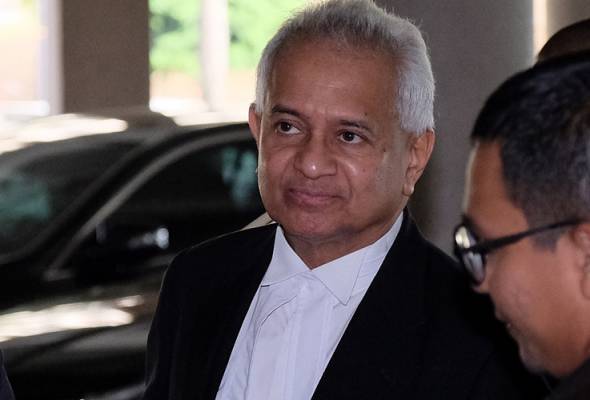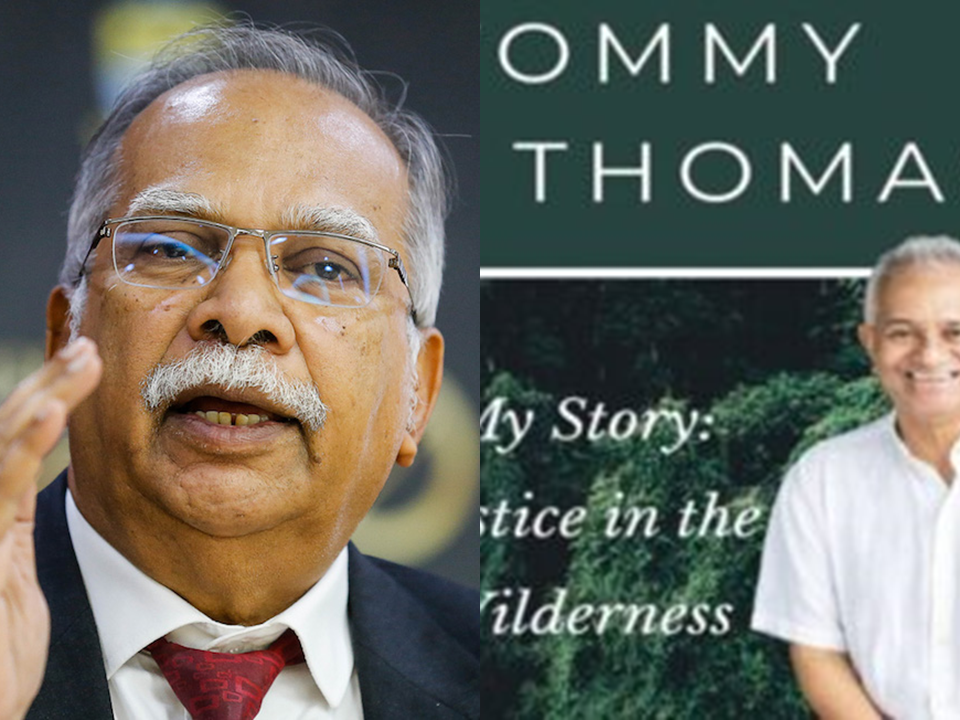

Attorney-General Tan Sri Tommy Thomas said his deputy public prosecutors (DPPs) would deal with each bail application on its merits and the Court would act as arbiter, as contemplated in the Federal Constitution.
On Nov 29, Judge Mohd Nazlan Mohd Ghazali ruled that Section 13 is unconstitutional because it divests from the courts the judicial discretionary power to evaluate whether or not to grant or refuse bail.
The judge made the ruling in a case of Melaka’s Gadek state assemblyman G. Saminathan, who has been charged with supporting and possessing items related to the LTTE terror group, in allowing him to apply for bail.
Thomas in a statement today said the practical effect of Section 13 was that because an accused could not apply for bail from the time he was charged until his trial (which may take as long as nine to 12 months).
He said the accused was effectively under preventive detention without recourse to a court which a fate similar to those who were detained under the Internal Security Act (ISA), 1960.
“The ISA was severely criticised for decades prior to its repeal in 2012. This is particularly unacceptable because of the fundamental principle underpinning criminal jurisprudence that an accused is innocent until found guilty by a court. Hence, all the SOSMA accused must be presumed innocent until conviction; yet they cannot seek bail from a court,” he said.
The Attorney-General also said concerns have been expressed whether a court would grant bail to a SOSMA accused who was building a bomb and intended to use it to kill innocent members of the public.
He said in such a case, Malaysians should be assured that once the DPP informs the court (with some credible evidence) that a bail applicant was planning such dastardly and violent acts, bail will be refused and no judge will be irresponsible to place public safety in jeopardy.
“Ultimately, we must trust the judges to decide in each case when a bail application is made whether to grant or refuse it and in cases where bail is granted, whether to impose any conditions, including the accused being restricted at his home, wearing a monitoring device, reporting daily to the police or any other conditions that the police or DPP may ask,” Thomas said.
Thomas explained that on Oct 29, 2019, 12 suspects linked to the terrorist group known as LTTE were charged under Section 130J of the Penal Code for giving support to LTTE through social media to promote the group to the public, as well as under Section 130JB of the Penal Code for having possession of items related to LTTE.
He said the 12 accused were investigated for some time by investigative agencies entrusted to prevent the outbreak of terror or violence.
“This is to be lauded. In comparative terms, Malaysia is one of the safest countries in the world, principally because of the masterful vigilance of our security forces, who have an outstanding track record of nipping the threat of violence at a very early stage.
“Hence, the charging of the 12 accused for these offences under the Penal Code should not create controversy, particularly, when there are no equivalent laws under which they can be charged. Like in any other case, the burden is on the prosecution to prove beyond reasonable doubt in the ordinary way in an open court that these accused are guilty of these offences,” he said.
The A-G further said under Sections 130 and 130J(b) of the Penal Code, under which all of them have been charged, are offences to which the SOSMA apply.
Thomas said SOSMA provides for special measures in dealing with a suspect from the time of his arrest until an appeal is disposed by the apex courts, but ever since its enactment, SOSMA has been subject to serious criticism from many sectors of society.
“Perhaps the most pernicious feature of SOSMA is the absolute prohibition in Section 13 of bail from the time of arrest until trial, indeed, even after an acquittal by the trial court pending appeal by prosecution to the apex court,” he said.
Thomas said that this means that the power of a court to hear and determine a bail application by an accused before it, which is a daily occurrence in all our courts handling criminal matters, is removed.
“Likewise, an accused has lost his right to make a bail application at the earliest opportunity, which is his right under most non-SOSMA charges under our criminal jurisdiction,” he said.
Thomas said what the drafters of SOSMA and the 2012 Parliament that enacted the law did not take into account was that the judicial function of the courts was eroded by virtue of Section 13.
“Consequently, judicial power is undermined,” he said.
Thomas further said our constitutional law has made substantial advances since SOSMA was enacted.
“The Federal Court decisions in a case of Indira Gandhi in 2016 and Semenyih Jaya in 2017 accepted the basic structure doctrine, and more significantly, the fundamental entrenched principle of highest importance, namely, the constitutional duty of the courts – to the exclusion of all other authorities – to judicially decide disputes. That would include contested bail applications,” he said.
He said Justice Mohd Nazlan recognised the principles in the basic structure doctrine and developed in the Indira Gandhi and Semenyih Jaya cases when holding Section 13 of the SOSMA Act as unconstitutional because that section closes the door to a judicial application for bail.
He added, thus access to justice is denied to all accused under SOSMA between charge and their final appeal before the Federal Court and to his opinion, any appeal against the decision of the High Court is doomed to fail.
“For these reasons, in the exercise of my discretion, I have decided that the public prosecutor will not appeal against the recent decision of the High Court in holding Section 13 of SOSMA unconstitutional. Our DPPs will deal with each bail application on its merits and the court will act as arbiter, as contemplated in the Federal Constitution,” Thomas said.
— BERNAMA









